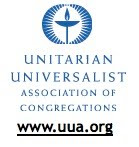Galloping Gaian Gonads!
Paraphrasing one of Greg Bear's characters in his novel "The Forge of God": "Humans are the gonads of Gaia (mother Earth)." That is, we are her reproductive strategy. This may not be a huge insight, but I am tickled by his mode of expressing it! It resonates and echoes the heroism of those species who have spread life to the corners of the Earth, including the tiniest island habitats, by dint of clever efforts to transport themselves across vast expanses of ocean and atmosphere. Still, when it comes to interplanetary or even interstellar travel, among all the species on Earth, only humans have displayed the potential to accomplish such a feat of transportation.
This being the 25th anniversary of the Challenger accident, it is thought provoking to think back on that in this context. I was working then at Marshall Space Flight Center, which was responsible for shuttle propulsion systems, including the boosters that failed disastrously. So our management was involved in the decision to push ahead on that icy morning in Florida. We scientists were practicing talks for a conference when the word came in. It completely broke up our meeting, and later our management team.
As aspiring Gaian gonads, we have on a few occasions seemed to be vying for Darwin awards, instead, perhaps calling to older minds Woody Allen's satire "Everything you always wanted to know about sex...". Space exploration is indeed deadly dangerous, but so is war. Yet the former is certainly a more productive application of testosterone and youthful drive. Given that that we strive instinctively to test our mettle against mortal dangers, the challenge of space travel promises a form of "glory" for our species and planet that is far beyond the sometimes petty national and religious rivalries that have plagued us. Wouldn't we prefer to live up to our role in Gaia's reproductive strategy, than to become passive or active agents of its destruction? That's a very real and compelling definition of good and evil. It seems defensible that all ethical and political issues should be decided on the basis of the sanctity, advancement, and propagation of life in the universe.
But, and it's a big BUT, there may still be a compelling need for war, even in pursuit of a cosmic destiny to protect and propagate life in the universe. Just as a prudent young couple defers child rearing until they are prepared to take on its responsibilities, so must nations defer the pursuit of space travel analogously. And one of those responsibilities is the creation of a stable home in which the serious business of nurturing can be pursued successfully. In addition to requiring the establishment of a viable economic activity, adequate to support the effort, this may at times also require defense of the household against attacks.
Attacks might come from any quarter, even including other competing life forms in the universe, as Greg Bear points out. The local attacks may be motivated by entirely different issues from this ultimate cosmic objective. But there is a distinct trade to be made in expending some life on Earth in defense of a stable and productive civilization capable of advancing life in the universe. Still, on balance, we may suspect that that trade has for too long favored local national issues rather than the long term future of life on our planet and beyond. And, in view of that suspicion it seems well worth considering that the zero sum allocation of human wealth expended upon space exploration could be greatly increased without substantially compromising the safety and stability of civilization.
This being the 25th anniversary of the Challenger accident, it is thought provoking to think back on that in this context. I was working then at Marshall Space Flight Center, which was responsible for shuttle propulsion systems, including the boosters that failed disastrously. So our management was involved in the decision to push ahead on that icy morning in Florida. We scientists were practicing talks for a conference when the word came in. It completely broke up our meeting, and later our management team.
As aspiring Gaian gonads, we have on a few occasions seemed to be vying for Darwin awards, instead, perhaps calling to older minds Woody Allen's satire "Everything you always wanted to know about sex...". Space exploration is indeed deadly dangerous, but so is war. Yet the former is certainly a more productive application of testosterone and youthful drive. Given that that we strive instinctively to test our mettle against mortal dangers, the challenge of space travel promises a form of "glory" for our species and planet that is far beyond the sometimes petty national and religious rivalries that have plagued us. Wouldn't we prefer to live up to our role in Gaia's reproductive strategy, than to become passive or active agents of its destruction? That's a very real and compelling definition of good and evil. It seems defensible that all ethical and political issues should be decided on the basis of the sanctity, advancement, and propagation of life in the universe.
But, and it's a big BUT, there may still be a compelling need for war, even in pursuit of a cosmic destiny to protect and propagate life in the universe. Just as a prudent young couple defers child rearing until they are prepared to take on its responsibilities, so must nations defer the pursuit of space travel analogously. And one of those responsibilities is the creation of a stable home in which the serious business of nurturing can be pursued successfully. In addition to requiring the establishment of a viable economic activity, adequate to support the effort, this may at times also require defense of the household against attacks.
Attacks might come from any quarter, even including other competing life forms in the universe, as Greg Bear points out. The local attacks may be motivated by entirely different issues from this ultimate cosmic objective. But there is a distinct trade to be made in expending some life on Earth in defense of a stable and productive civilization capable of advancing life in the universe. Still, on balance, we may suspect that that trade has for too long favored local national issues rather than the long term future of life on our planet and beyond. And, in view of that suspicion it seems well worth considering that the zero sum allocation of human wealth expended upon space exploration could be greatly increased without substantially compromising the safety and stability of civilization.







